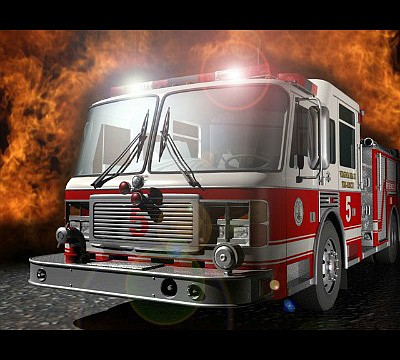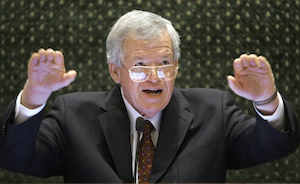Chattanooga's current fire and police pension quagmire has its roots in 1990s-era reforms aimed at pruning top-heavy management ranks.
Fifteen years ago the Chattanooga Police Department had nearly as many administrators behind desks as officers arresting criminals on the street.
Since police pensions then were capped at 60 percent of a sergeant's pay - an average of less than $24,000 a year - midlevel managers clung to their jobs, some for as long as 40 years, rather than retire and take big pay cuts.
In an effort to make retirement more attractive, the city launched a two-year public campaign to significantly increase police and firefighter benefits. In a 1999 referendum, city residents voted to do away with the minimum retirement age of 55, base retirement checks on the employee's three highest years of pay and build in a 3 percent annual cost of living adjustment.
The goal was "about getting a better pension system that would give people the initiative to retire and put the department in a position that we could get more officers," said former Police Chief Jimmy Dodson, who helped change the pension system. "They deserved to have a better pension, there's no doubt about it."
About 140 police and fire personnel retired between 1999 and 2001 under the new benefits.
But the law of unintended consequences is implacable. Factors including rising costs and the stock market crash during the recession affected the fund. Now, though the city's contribution grows each year, the pension plan is only 60 percent funded and faces a $150 million shortfall, city figures show.
Shortly after taking office in April, Chattanooga Mayor Andy Berke looked at the figures and said the pension is unsustainable. He hired a consulting firm, the PFM Group, and appointed an 18-member board to study Chattanooga's plan.
PFM's first finding is that Chattanooga's police and fire pensions are among the richest compared to those in 14 other Southeastern cities, including Nashville, Knoxville and Charlotte, N.C.
The finding is based on each city's pension formula, a complicated matter involving years of service, percent of base pay and employee/employer contributions, that makes direct dollar comparisons difficult.
However, Chattanooga ranked among the top three in benefit formulas among the 14 cities, along with Birmingham and Sarasota, PFM's report shows. After working 25 years, local police and firefighters can retire as early as age 46 at more than two-thirds of their active-duty pay, plus health benefits.
Only two other cities don't have a minimum retirement age, and the others ranged from 50 t0 65.
Charlotte police officers have to be 55 and firefighters 50 to receive benefits. Memphis' minimum is 55 and Knoxville's is 50. The highest, 65, is in Columbus, Ga.
The guaranteed 3 percent COLA is the second-highest of the cities compared. Nearly half of the cities don't have a guaranteed COLA. The bump is twice what Social Security recipients will get in January. Though Chattanooga's police and firefighters don't get Social Security, some in the comparison cities do, the study showed.
PFM consultant Vijay Kapoor said the decision how to change the benefit structure will be based on what is wanted from the workforce.
"The question for both the city and the task force right now is regarding those benefits, were the reason those benefits were implemented still valid today? Is that problem still around?"
•••
Fire and Police Pension Board President Chris Willmore agreed that the city and the task force will have to decide how changing the benefit structure will affect the workforce.
Board members said the current plan aimed to retain officers and firefighters for 25 years and then have them retire with dignity before 30 years, taking a deferred retirement option plan, or DROP, for their last three years of work.
It worked, said Willmore. These days, most officers retire after 28 years of service at an average age of 53. The average pension beneficiary is paid $37,524.
But earlier this month, Police and Fire Pension board members made the first move to compromise by trimming benefits.
They suggested a minimum age of 50 to receive benefits and basing cost of living adjustments on market value instead of an automatic 3 percent bump.
This caused concern among some retirees afraid of losing COLAs and among younger hires who say the city must keep its promise about benefits.
Police officers and firefighters say they put their lives on the line to protect lives and property and they deserve what the city promised them.
"I was hired in with a 25-year obligation to get a retirement," said firefighter Jack Thompson, president of the local firefighters union. "Now they're telling me I have to retire at 50?"
Chattanooga Police Sgt. Tim Tomisek is on the pension task force and president of the International Brotherhood of Police chapter. He said he's willing to work with the age requirement and agreed that adjusting the COLA calculation is reasonable because it's unlikely most benefit plans still have a set guarantee on an investment.
Tomisek said the board is looking at ways to offer partial retirement until an officer or firefighter reaches 50 and to see whether cost of living adjustments at a guaranteed rate would be grandfathered in for retired workers. But the compromises may have to be greater to stabilize the pension.
"To change the rules midstream is bad business," he said. "However, that being said, I would rather have a pension than not have one."
Dr. Bruce Hutchison, an economics professor at the University of Tennessee at Chattanooga, said it's a balancing act for cities to keep their promises to employees while still being accountable to taxpayers.
He said many of the residents who voted for the benefit increases in 1999 are not the same taxpayers paying those extra costs now.
"You've got the police officers who justifiably want what they were promised, but you're asking taxpayers in many instances to fund something they didn't get the benefits of," Hutchison said.
"Is that fair to those taxpayers? I don't think its any more unfair to them than it would be unfair to the police officers not to get their full pensions and health benefits."
That means both sides have to give a little, he said.
Contact staff writer Joy Lukachick at jlukachick@timesfreepress.com or 423-757-6659.


